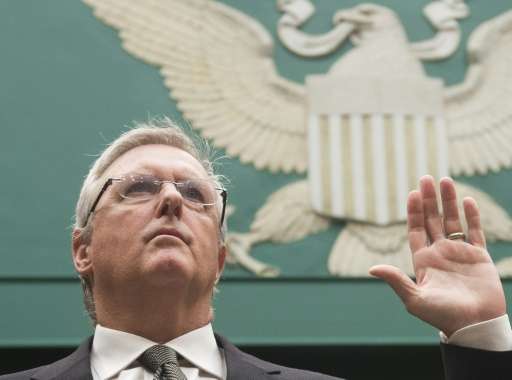'We have not provided source code to China': Apple

Apple has not provided its underlying software instructions or "source code" to China, the company's top lawyer said Tuesday, seeking to quash rumors about the iPhone maker's data security.
Apple's general counsel Bruce Sewell, appearing at a congressional hearing on encryption's impact on law enforcement, defended the company's toughened encryption which can sometimes make data unreadable to authorities, even with a warrant.
"The best way we, and the technology industry, know how to protect your information is through the use of strong encryption," Sewell told a House panel.
"Strong encryption is a good thing, a necessary thing. And the government agrees. Encryption today is the backbone of our cybersecurity infrastructure and provides the very best defense we have against increasingly hostile attacks."
Sewell added to his prepared remarks, seeking to clarify Apple's position after comments from law enforcement officials at the same hearing.
"We have not provided source code to the Chinese government," he said.
"We did not have a key 19 months ago that we threw away. We have not announced that we are going to apply passcode encryption to the next generation iCloud. These allegations have no merit."

Earlier in the hearing, Indiana State Police Captain Charles Cohen told the panel that he had read news reports indicating Apple had turned over its source code—which could be used to break encryption—but that he had no first-hand knowledge of this.
Sewell subsequently was asked whether Beijing had asked for the source code.
"We have been asked by the Chinese government. We refused," he said, adding that this had happened "within the past two years."
The hearing was called to discuss how strong encryption is hampering law enforcement and how technology firms should respond to legitimate law enforcement requests to break encryption.
The issue hit a boiling point earlier this year when Apple refused to help the FBI weaken the operating system of an iPhone used by one of the shooters in last year's San Bernardino killing spree. The government eventually withdrew the request, but similar cases are pending in the courts.
An FBI official at the hearing repeated concerns that unbreakable encryption may help criminals and terrorists evade detection.
"We have seen case after case—from homicides and kidnappings, to drug trafficking, financial fraud, trade secret theft, and child exploitation—where critical evidence came from smart phones, computers, and online communications," said FBI executive assistant director Amy Hess.
"Increasingly, some technologies are prohibiting law enforcement from having access to that critical evidence."
© 2016 AFP




















